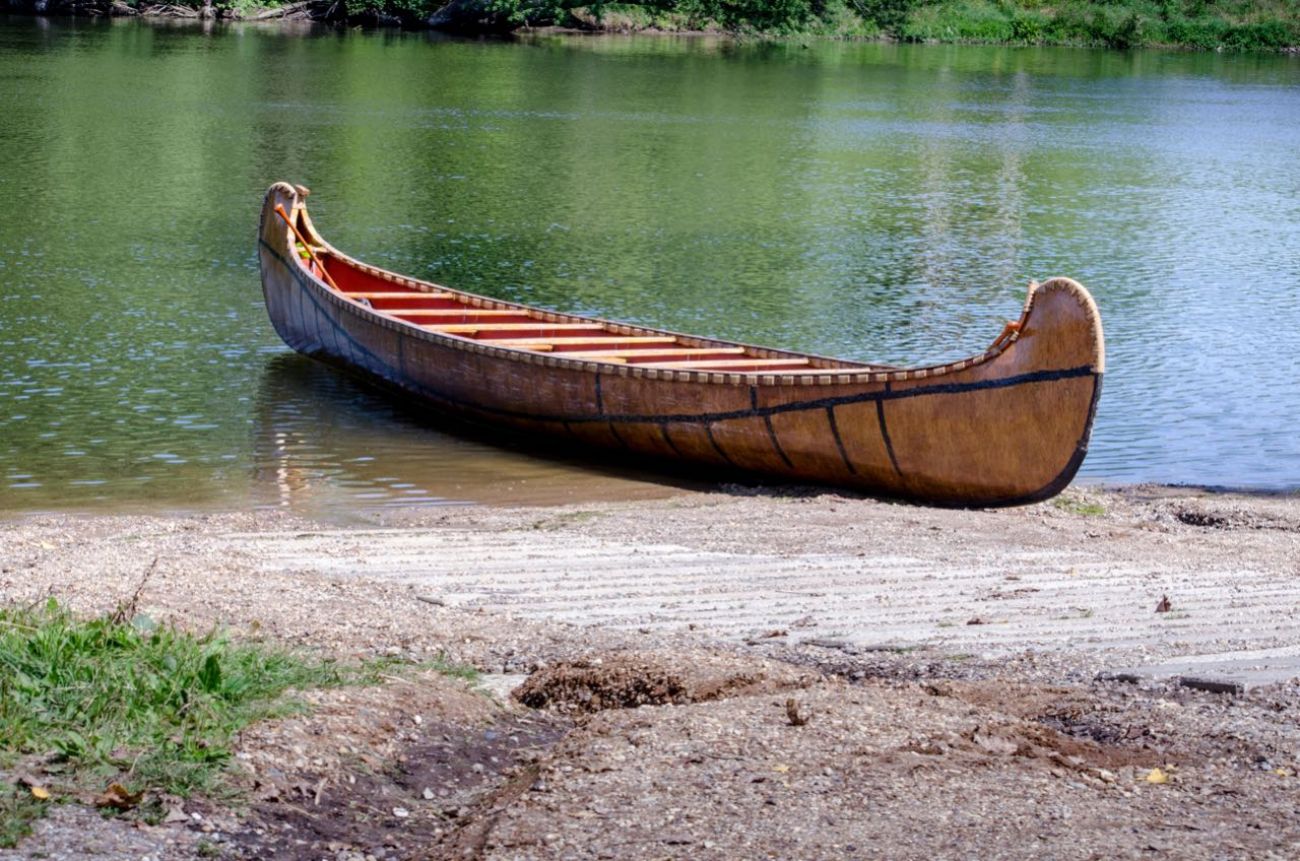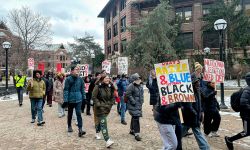Will Michigan summer camps fall victim to coronavirus, too?

For the past 54 days, Ann Arbor residents Sarah and Ben Woodside have balanced both working from home and caring for their three young children. Their days are split between homeschooling, sanitizing the house and groceries, and continuing full-time work remotely from their home.
“It’s hard to get work things done,” Sarah Woodside said. “Right now we balance Ben taking care of the kids while I have meetings and vice versa, but things are slipping through.”
In a typical summer, the couple would get respite by sending their 10-year-old daughter and 5-year-old twins off to Ann Arbor Community Recreation and Education and Girl Scout programs. But this summer is far from typical. The same pandemic that closed K-12 classrooms in March now is threatening to close summer camps that Michigan children (and their parents) rely on.
- The latest: Michigan coronavirus map, curve, chart, updated COVID-19 news
- Michigan’s latest stay-home order to allow landscaping, boating and golf
- What Gov. Gretchen Whitmer’s stay-at-home executive order means to Michigan
Sarah Woodside said she is finding that many camps are unsure if they will hold operations as planned for the 2020 season. “We usually get the Rec & Ed catalogue and pick out what would be best for the kids,” she said. “I haven’t registered for anything this summer because I don’t know what will happen.”
Summer camps across Michigan are closing for the year, going online, or are uncertain about the activities they’ll be able to offer because of lingering health concerns about COVID-19.
Blue Lake Fine Arts Camp, which hosts over 5,400 K-12 students on its 1,600-acre campus each summer, decided to cancel its entire 2020 summer season on April 13. Citing “the impact of the coronavirus and COVID-19,” Blue Lake asked future campers to be patient and consider supporting camp efforts by donating to its arts nonprofit or listening to its radio show.
Interlochen Arts Camp, one of Michigan’s most well-known summer camps, is taking a different approach. In a statement on the website, President Trey Devey announced the camp’s 93rd season would take place virtually as the newly-launched “Interlochen Online” program. Classes will take place over Zoom from 11am to 4pm each day, offering classes in acting, dance, filmmaking, music and song composition, and general arts for students in grades 2-12. All online campers will receive a “Camp-in-a-Box” package and participate in a virtual camp cabin guided by a counselor who leads daily activities and break times. While tuition is usually $6,100 for a three-week, on-campus session, it has been reduced to $2,950 for the online program.
Online camp doesn’t help if parents have to return to work without child care options or have concerns over screen time and WiFi accessibility.
When asked if she would enroll her children in an online camp, Woodside said: “It’s hard to keep my children focused online at their age. I think I would want to find out more. I’ve noticed that my children are getting screen fatigue, it’s tiring. You definitely feel the lack of personal interaction to enjoy and stay motivated.”
Other camps are hoping to operate this summer with social distancing and other health-forward practices in place. The YMCA of Metro Detroit, which enrolls more than 3,500 day campers in the Detroit area and 2,500 in counties across the state, plans to run this summer, if at all possible.
“We are going to have camp if the state and federal guidelines allow it. We are looking at how we can implement social distancing, and if federal and state laws and the Centers for Disease Control allow the camp to operate, we fully intend on operating,” YMCA spokeswoman Latitia McCree told Bridge. “It is all contingent upon what the rules and regulations allow.”
David Long, the executive director of Wildwood Ranch in Howell and co-chair of the Michigan Local Council for the American Camp Association, said the organization is producing a “COVID-19 Resource Center” information about best practices for the coming months.
Long some camps may not survive the financial loss that comes with virtual programs, low enrollment or cancelations.
“Camps are small businesses,” Long said. “If they can’t get income, they can’t sustain themselves. That’s the fear. Some are backed by larger organizations, but others are going to struggle.”
Learning and development professional April Welliver has been instructed by her company to stay at home until May 31. After that, she’s not sure what she’ll do with her two girls, aged 8 and 12. In past summers, the two attended public school summer programs and Gym America camps, but Welliver is hesitant to enroll in those programs until she knows more about what summer will look like.
“If the summer camps are closed, I’ll need to fan out and get some help for their care from family members,” Welliver said. “With the competing demands, there will be some challenges ahead. We will figure it out though.”
RESOURCES:
- Hey, Michigan, here’s how to make a face mask to fight coronavirus
- Michigan coronavirus dashboard: cases, deaths and maps
- Michigan families can get food, cash, internet during coronavirus crisis
- How to give blood in Michigan during the coronavirus crisis
- 10 ways you can help Michigan hospital workers right now
- Michigan coronavirus Q&A: Reader questions answered
- How to apply for Michigan unemployment benefits amid coronavirus crisis
Michigan Education Watch
Michigan Education Watch is made possible by generous financial support from:
Subscribe to Michigan Education Watch
See what new members are saying about why they donated to Bridge Michigan:
- “In order for this information to be accurate and unbiased it must be underwritten by its readers, not by special interests.” - Larry S.
- “Not many other media sources report on the topics Bridge does.” - Susan B.
- “Your journalism is outstanding and rare these days.” - Mark S.
If you want to ensure the future of nonpartisan, nonprofit Michigan journalism, please become a member today. You, too, will be asked why you donated and maybe we'll feature your quote next time!






